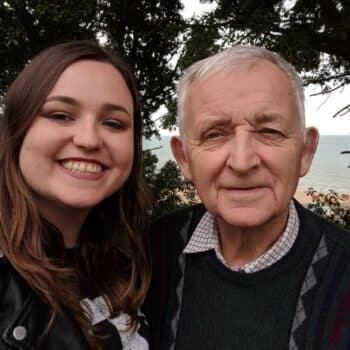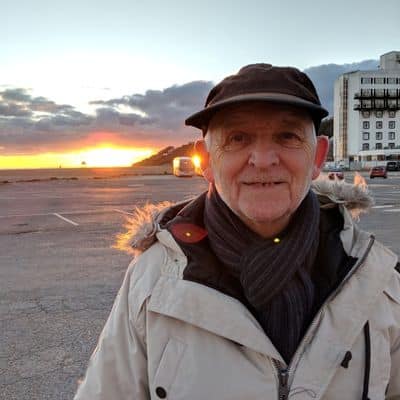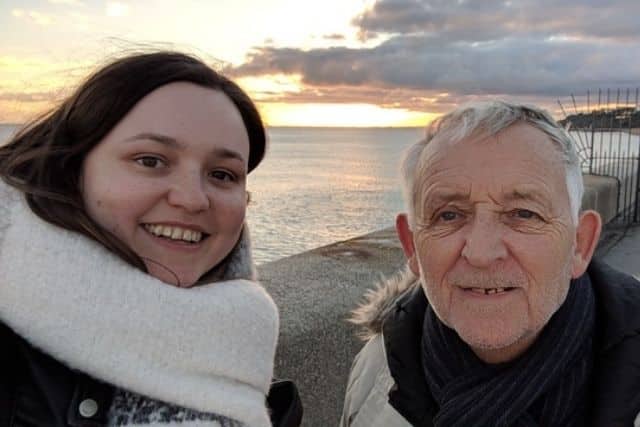Capturing Memories of My Father

I wanted to document our relationship, the deterioration with dementia, in the hope that, perhaps, it would help others in similar situations relate.
January 8, 2025
In 2015, when Emily was 24, her 72-year-old father, John, was diagnosed with dementia. He died five years later, and Emily documented their journey together on her blog, honestemily.com
No one likes a camera being shoved in their face, but we do it all the time.
You assume the person you’re filming understands what’s happening and is happy being filmed, but imagine that they’re actually uncomfortable or confused. Maybe they don’t recognize the person holding the phone — or what the phone even is. Maybe they don’t feel safe.
How often do we put ourselves in the shoes of a person living with dementia and wonder how our actions might affect them? In the rush to capture everything on camera while we can, and post the results on Facebook for family, we ignore the possible repercussions. So how can we get the most out of these experiences, without wedging tech between these very human moments?
My father was diagnosed with dementia when I was in my mid 20s, and I had no clue what was coming. I wanted to document our relationship, the deterioration with dementia, in the hope that, perhaps, it would help others in similar situations relate. I certainly learnt a thing or two about trying to balance life, love, care, and recording everything for posterity. But as time went on, my philosophy changed.

There are some positives, believe it or not, in that when you try to record something, there is a good chance your loved one will totally forget you are recording. One winter morning, I had a revelation I wanted to record my father’s voice; just daily conversation, but one which would capture those little golden moments of tenderness or clarity — like recognition of who I was, or him talking about having a nice day out.
I dressed him in his big puffy coat, and put my small tablet into the inside pocket, and clipped the microphone onto his scarf, letting him know what I was doing. At first he did his little act, like he felt he may need to perform, because I was recording. But it didn’t take long for him to forget it was there and we went about our day. Knowing I was recording allowed me to just be in the moment with him.
Capturing memories is so important and I implore everyone to do it, but I also recommend you put yourself in your loved one’s shoes. Ask yourself: are they going to be comfortable while you’re recording? And more than that — would they be comfortable with you having the recording in the first place, as many people don’t want to show the slow decline they are experiencing.

Even when the memory of someone living with dementia may be unreliable, studies have shown that what stays with them throughout the day isn’t what they did, but the emotion they felt — and that lingers long after the memory fades. My dad might not remember the ice cream we had on the beach, but he will remember feeling comfortable and relaxed and safe. The last thing you want to do is record these moments for the future and for them to be marred by your loved one feeling uncomfortable in the moment — then you might not get any genuine interactions or treasured moments with them.
When you do press record, be subtle about it, don’t allow it to consume you, and enjoy the ‘now.’ And remember: you don’t have to record everything. Life is for living.